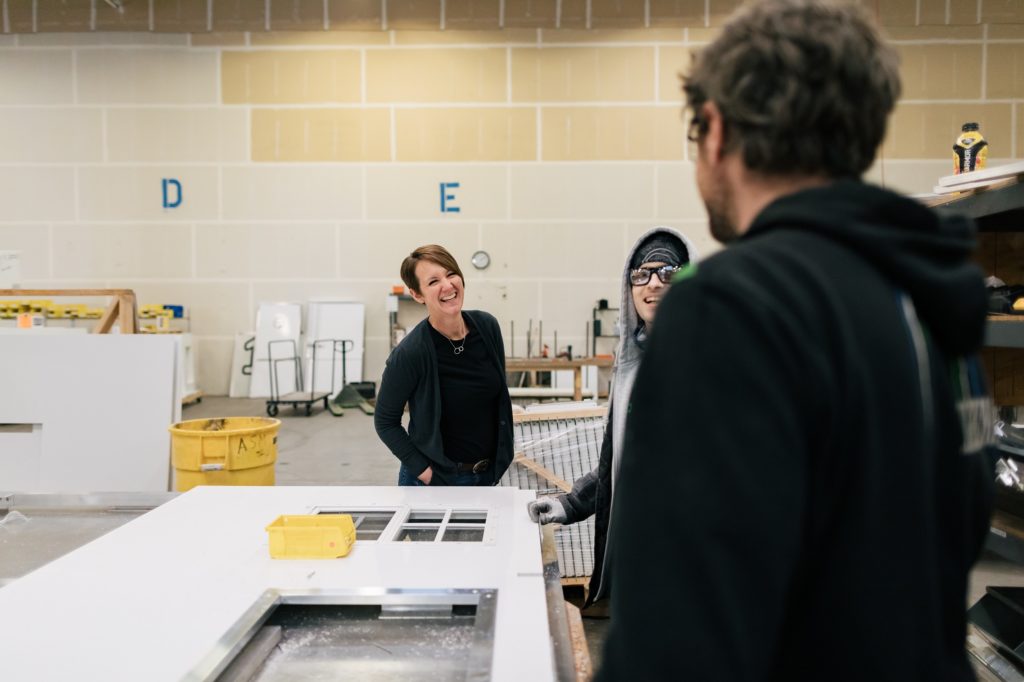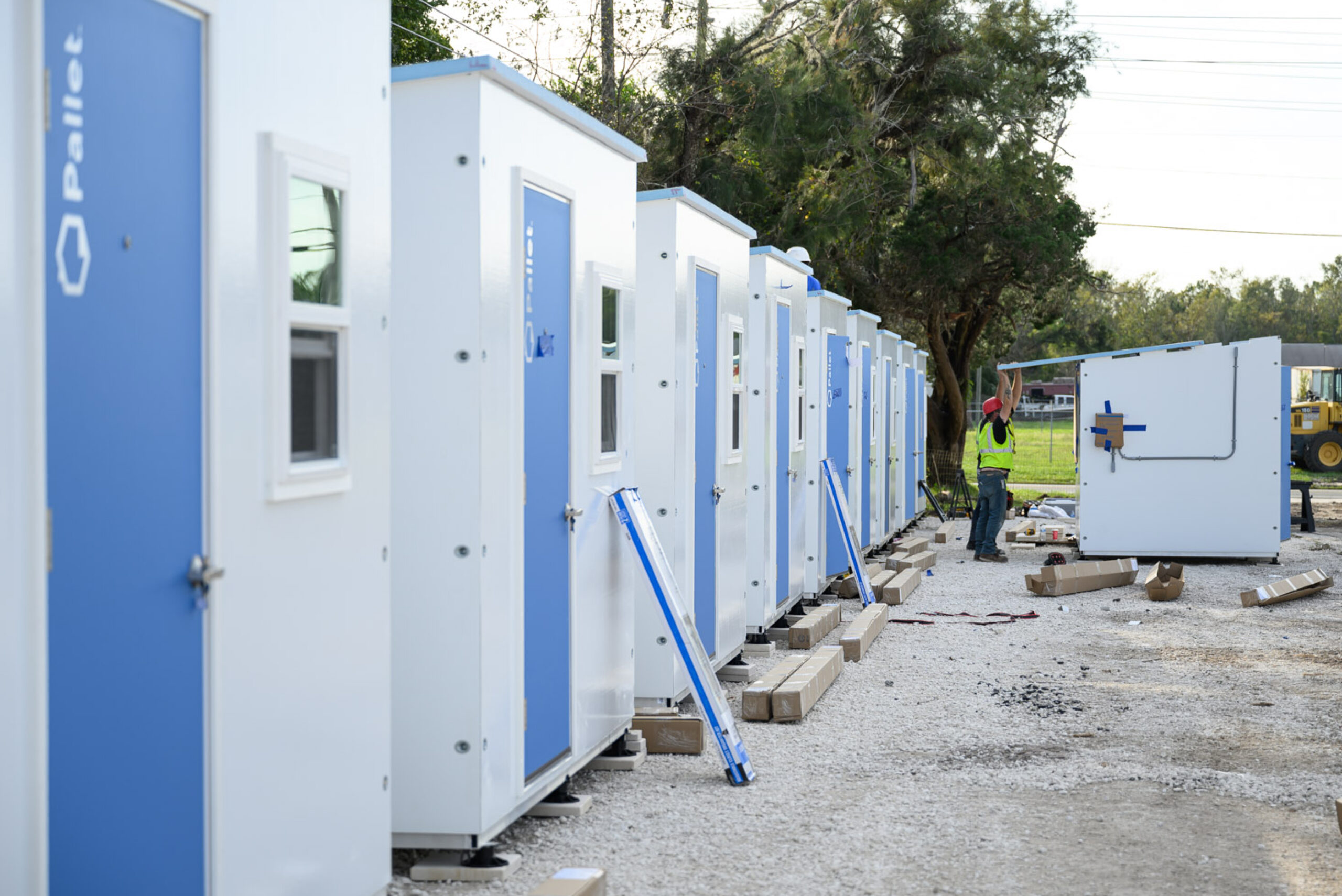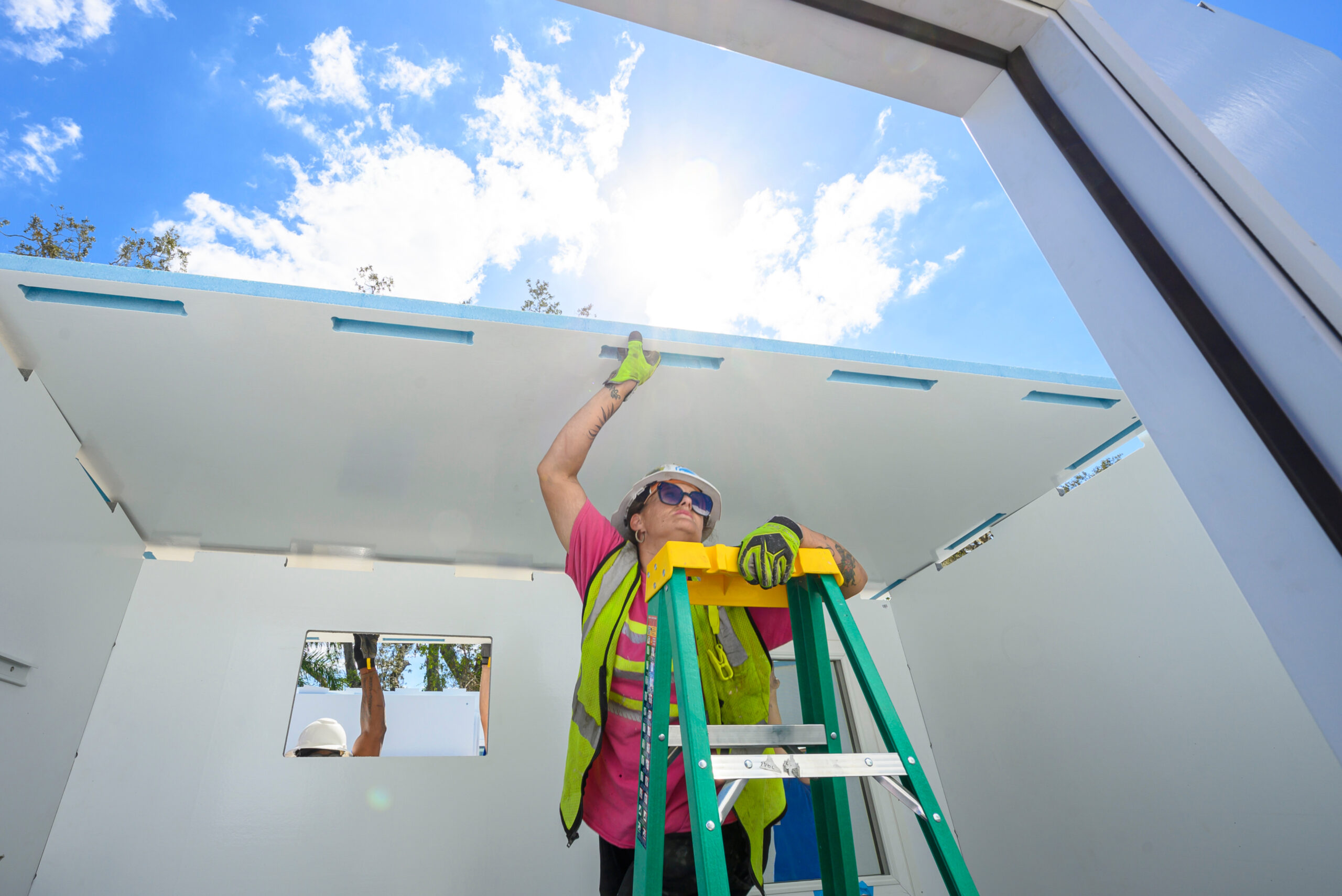FAQ’s about becoming a second chance employer
September 9, 2021

From the start, Pallet employed a non-traditional workforce to build shelters for people experiencing homelessness. We believe potential — not the past — defines people's futures. More than 80% of our employees are formerly homeless, in recovery, or previously involved in the justice system. People with lived experience are vital in helping us design and build restorative communities. Amy King, Pallet Founder and CEO, wouldn’t have it any other way. She encourages employers to adopt a diversified employment practice.
In this follow-up to five tips to becoming a second chance employer, Amy answers frequently asked questions about hiring. (*We now describe our hiring practices as fair chance employment. Learn why we changed our language here.)
Do I need to perform a background check?
A background check isn't necessary for many industries. Exceptions include those that interact with children. If an employer chooses to run a background check, Amy says it's best to approach it as a tool for honest communication.
"We take more of the approach of, here's your background check. You've seen it, we've seen it. Let's have a conversation about it. It creates that inherent kind of foundation and undercurrent of trust between us and the employee as we go forward. I think it's a helpful tool."
One upside to going over background check results is that it gives the employee a chance to verify that all the information is correct. If there's an error, we direct them to a service that helps them clear it.
The results from a background check have never disqualified anyone from working at Pallet.
Should we have sobriety requirements?
This decision depends on the industry and corporate values. Pallet is a substance-free workplace. We chose this partly because many of our employees are in recovery, so we've created a culture that supports them.
"When you come here, this is a safe place. If you can't pass a drug test, you can't be here because the person next to you is fighting hard for their sobriety, and we don't want you to derail them. And they don't want to derail you, you're in this together. It's less about substance use as it is about creating a culture of safety. And I think that's the key for people who want to do second chance employment; it's got to be a safe environment for people."
I'm concerned my current employees will be scared. How do I address fears of safety?
One of the best things you can do is expose your existing staff to people with lived experience before hiring. For example, Amy has helped interested employers by putting together a panel of people to discuss their lives and the circumstances leading to homelessness, substance use, or incarceration.
"Hearing these stories of rehabilitation and recognizing that someone exiting prison or coming out of addiction or coming off the streets out of homelessness doesn't have to be a scary person. And is probably, in fact, inherently not a scary person. They're a person who needs help."
What about theft?
"That person is no more dangerous than anybody else in your building. I guarantee it. People are people," Amy explained. "Give your people the benefit of the doubt. If you trust them and you believe in them, they will believe in themselves and trust themselves. And then it becomes a shared trust."
How high is staff turnover?
Pallet has been able to avoid the revolving door of staff and the expense that comes with it.
"We have very low turnover rates compared to most businesses because our people are very loyal. They're doing purposeful, mission-driven work that they care about, so they're more likely to stay here."
Why should I hire a nontraditional workforce?
"One of the best things you can do to contribute to our community is help the people who are the most marginalized and who have the least amount of opportunity. That might not seem like an obvious thing. But the more you help the people at the bottom, the more you're helping everybody. Because everybody is responsible for that person at the bottom, whether they're aware of it or not, and it's not just economics, either. Human beings are not inclined to ignore one another's suffering, and whether we outwardly ignore it or not, it's there."
For more on Pallet’s workforce and the construction of our shelter villages, check out this podcast interview transcription with Amy.


